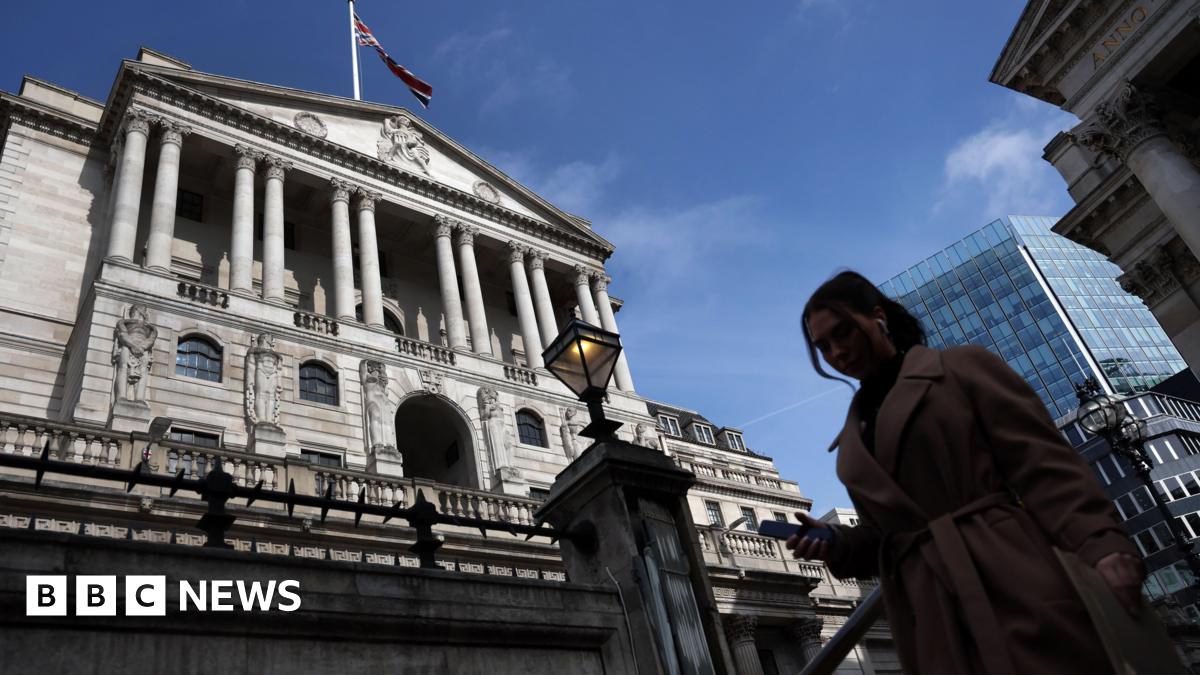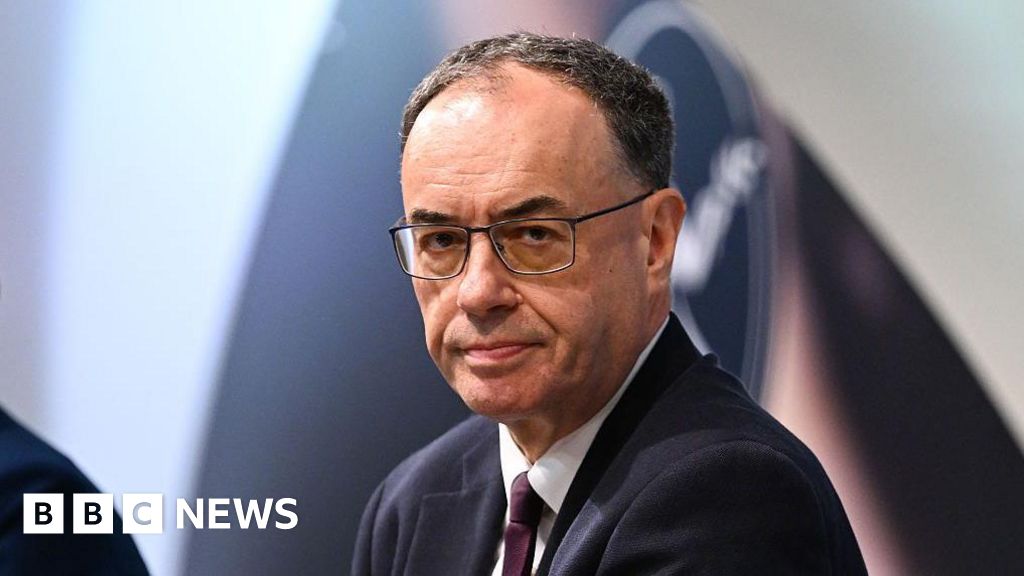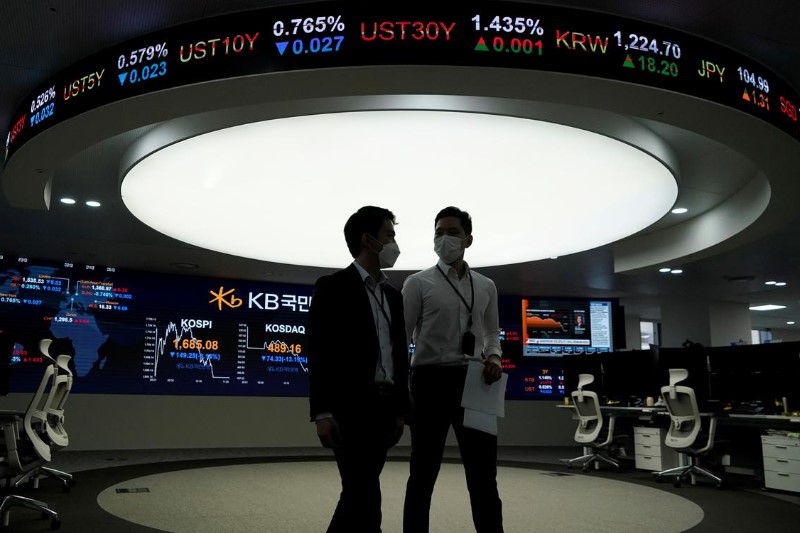Bank of England Holds Interest Rates at 4%
#bank_of_england #inflation #monetary_policy #economy #budget

Bank of England Holds Interest Rates at 4%
The Bank of England has decided to maintain the base interest rate at 4%, marking the final adjustment before Chancellor Rachel Reeves presents the Budget later this month. This decision reflects a cautious approach amid balancing inflation control and economic growth concerns.
Inflation and Economic Outlook
Although inflation has eased from its peak, it remains above the target at 3.8%, prompting the Monetary Policy Committee to keep rates steady. The committee aims to ensure inflation returns sustainably to the 2% goal, weighing the risks of inflation persistence against weakening economic demand and labour market slack.
Future Rate Expectations
With inflation showing signs of gradual decline and economic growth subdued, the Bank of England suggests interest rates may slowly decrease in the near term. However, any further cuts will depend on ongoing inflation data and economic conditions, signaling a measured path forward.
About the People Mentioned
Rachel Reeves
Rachel Reeves is a British politician and economist who serves as **Chancellor of the Exchequer**, making her the first woman to hold this position in its over 800-year history.[1] Born on 13 February 1979 in Lewisham, southeast London, she comes from a public service background.[2] Reeves studied at Oxford New College and the London School of Economics before working as an economist at the Bank of England for a decade, followed by roles at the British Embassy in Washington and HBOS.[3] She has described herself as a former chess champion.[4] She entered Parliament in 2010, winning the seat of Leeds West at her first attempt, which she has held comfortably since, now representing Leeds West and Pudsey following boundary changes.[2] Her rise through Labour's ranks was rapid. She served as Shadow Chief Secretary to the Treasury from 2011 to 2013, then as Shadow Secretary for Work and Pensions from 2013 to 2015.[3] After stepping back from the shadow cabinet during Jeremy Corbyn's leadership, she chaired the Business, Energy and Industrial Strategy Committee from 2017 to 2020.[3] When Keir Starmer became Labour leader in 2020, he appointed her as Shadow Chancellor, and she replaced Anneliese Dodds as shadow chancellor in May 2021.[3] Following Labour's landslide victory in the 2024 general election, Reeves was appointed Chancellor of the Exchequer on 5 July 2024.[5] Early in her tenure, she established the National Wealth Fund, scrapped certain winter fuel payments, and cancelled several infrastructure projects while announcing public sector pay rises.[1] She presented her first budget in October 2024, introducing the largest tax rises at a budget since March 1993, and presented a second budget in November 2025 with further tax rises.[1] As Chancellor, her responsibilities include delivering the government's growth mission, managing fiscal policy, and overseeing economic security and resilience.[5]
About the Organizations Mentioned
Bank of England
The **Bank of England** is the central bank of the United Kingdom, established in 1694 by an act of Parliament primarily to raise funds for the English government to wage war against France. It was initially incorporated as a joint-stock bank with limited liability and granted a royal charter, giving it unique privileges, including a monopoly on issuing banknotes within London until the 19th century[1][2]. Its headquarters are located in the City of London, on Threadneedle Street, a site it has occupied since the 1730s[1]. Historically, the Bank of England evolved from a government debt manager and banker into a central bank with broader responsibilities. By the 19th century, it undertook key central banking roles such as printing legal tender, acting as lender of last resort, and safeguarding the nation's gold reserves[1]. The 1844 Bank Charter Act was a landmark, granting the Bank a monopoly on note issuance in England and Wales and establishing that notes be backed by gold, laying the foundation for the gold standard and long-term price stability[3]. The Bank's role expanded over time to include maintaining monetary and financial stability in the UK. It became the government's banker and debt manager, managing government accounts and loans[3]. In 1997, it was granted operational independence over monetary policy, with its Monetary Policy Committee setting interest rates to maintain a 2% inflation target, thus enhancing its credibility and effectiveness[5]. Key achievements include its pioneering role in managing national debt, establishing the gold standard, and acting as a lender of last resort during financial crises. The Bank also leads financial stability efforts, providing a backstop for the banking system during panics[3][4]. Today, the Bank of England remains a foundational institution in UK finance, balancing traditional central banking functions with modern challenges in monetary policy, financial regulation, and technology innovation. It also issues UK banknotes, manages gold reserves, and continues to support economic stability in a comple
Monetary Policy Committee
The **Monetary Policy Committee (MPC)** is a key decision-making body within a country’s central bank responsible for formulating monetary policy, primarily by setting benchmark interest rates such as the repo rate. Its main mission is to control inflation and stabilize the economy by regulating the money supply and borrowing costs. The MPC plays a vital role in maintaining price stability, supporting sustainable economic growth, and managing exchange rates[1][3][4]. The concept of an MPC was introduced to bring transparency, accountability, and collective decision-making into the monetary policy process, which was previously dominated by the central bank governor alone. For example, India’s MPC was constituted under the Reserve Bank of India Act, 1934, to fix policy rates through a committee of experts including the RBI Governor and external members, meeting at least four times annually to publish policy decisions and rationale[1]. Similarly, the Bank of England’s MPC, established in 1997, comprises nine independent members including the Governor and external experts appointed by the government, meeting eight times yearly to set the official Bank Rate and guide monetary policy[3][5][7]. The Federal Reserve's equivalent body is the Federal Open Market Committee (FOMC), which also uses tools like open market operations and reserve requirements to influence the economy[6]. Key achievements of MPCs worldwide include institutionalizing systematic inflation targeting, enhancing policy transparency through published minutes and forward guidance, and improving economic stability by effectively managing interest rates during financial crises and growth cycles. For instance, the UK's MPC has been credited with anchoring inflation expectations and contributing to economic resilience through careful rate adjustments and quantitative easing measures[3][7]. Notable aspects of MPCs include their independence from direct political influence, the diversity of expertise among members, and their use of a broad data set to forecast inflation and economic trends with a medium-term perspective. They communicate decisions publicly to provide clarity and reduce market uncertainty, making them central to modern economic governance[1][4][5]. The
















